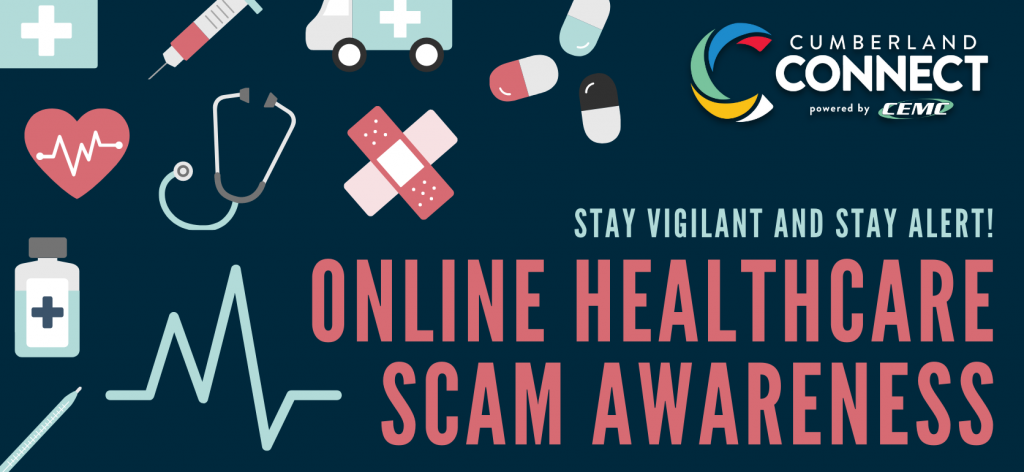Online Healthcare Scams to Watch Out For
As we head into 2022, COVID is still lingering. The pandemic itself already creates a great deal of uncertainty and confusion for everyone, and cybercriminals are trying to take advantage of this to steal private information from Internet users all over the country. Read on to learn about examples of online COVID scams and other common healthcare scams to watch out for.
CDC Spoofers
In our past posts, we’ve talked a lot about spoofing — the act of a cybercriminal impersonating another person or organization in order to conduct a scam. Scammers are hoping to capitalize on constantly-changing information about COVID variants, vaccines, and tests, so it is important to stay vigilant! One recent scam email circulating appears to come from the Center for Disease Control (CDC) and offers recipients a new COVID-19 Omicron PCR test. After clicking the link provided in the email, the recipient is directed to a CDC look-alike website that asks for personal and payment information. Any information entered on this fake site is sent straight to cybercriminals.
Since these spoofing emails and websites can be tricky to spot, it is so important to be mindful of any email you receive that contains external links — even if it appears to come from an organization that you know and trust. A helpful technique is to hover over any hyperlinks to reveal the page it directs to. Does this link match up with the organization’s official website? If not, you should delete the email immediately. Remember: when in doubt, close out!
Healthcare Scams
Another common email scam you may encounter is an email containing fake test results or medical bills. A good rule of thumb is always to call your healthcare provider directly if you receive a suspicious email, particularly if you weren’t expecting it ahead of time. Healthcare providers will usually call you directly to discuss test results. Medical invoices are typically sent through the mail or found in a secure online payment portal that your healthcare provider operates. Don’t send payment to a suspicious source before checking with your healthcare provider directly!
Although we are living through turbulent times, staying mindful and vigilant online can help you avoid falling for a cybercriminal’s tricks.
